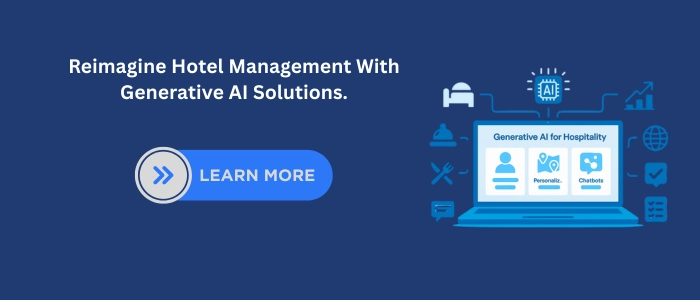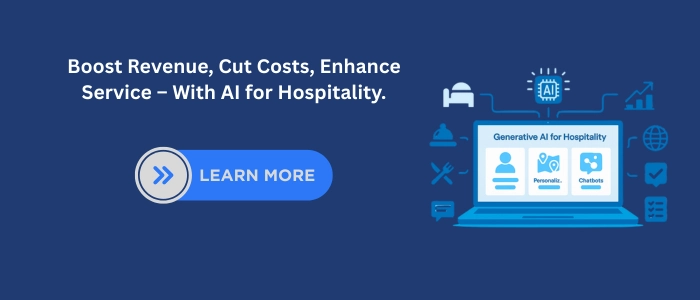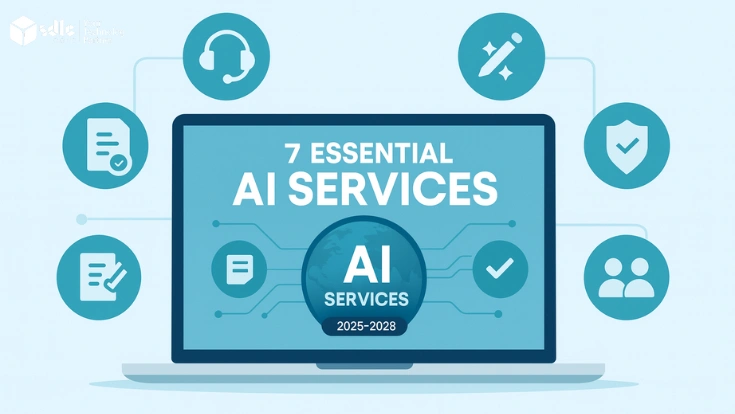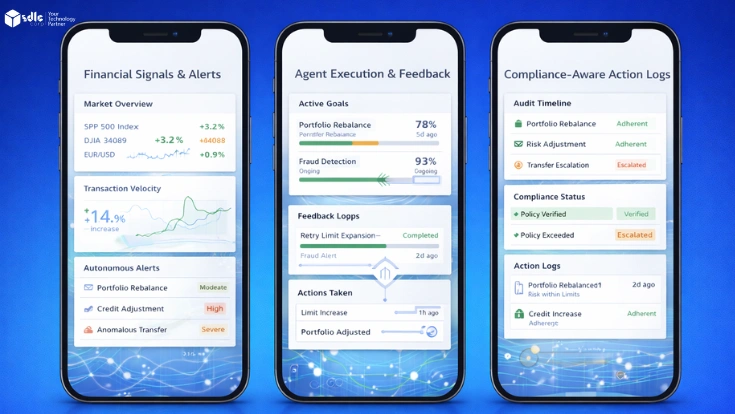Introduction
Hospitality thrives on personal attention and seamless service. From the moment a booking is made to post-stay follow-up, each interaction shapes the guest experience. Today, generative AI in hospitality offers new ways to understand and serve guests better.
Unlike traditional automation, generative AI creates context-aware responses, personalized recommendations, and adaptive marketing strategies. Whether improving AI for hotel management, enhancing an AI-powered guest experience, or delivering personalized travel recommendations with AI, it enables hotels to operate smarter and more efficiently.
Role of Generative AI in Hospitality Systems
Hospitality platforms manage data across reservations, guest services, operations, and feedback. Generative AI can support these systems by summarising booking data, drafting internal reports, and assisting with knowledge sharing across teams. Many organisations explore Generative AI development services to build models that work with hospitality data while supporting consistency and service quality.
Understanding Generative AI in Hospitality

Generative AI uses advanced machine learning models to produce tailored text, images, or recommendations based on data. In hospitality, it can:
- Design unique room welcome messages.
- Suggest tailored itineraries.
- Draft personalized marketing emails.
Hotels benefit because these systems handle complex queries without pre-scripted rules, enabling flexible guest interactions.
AI for Hotel Management
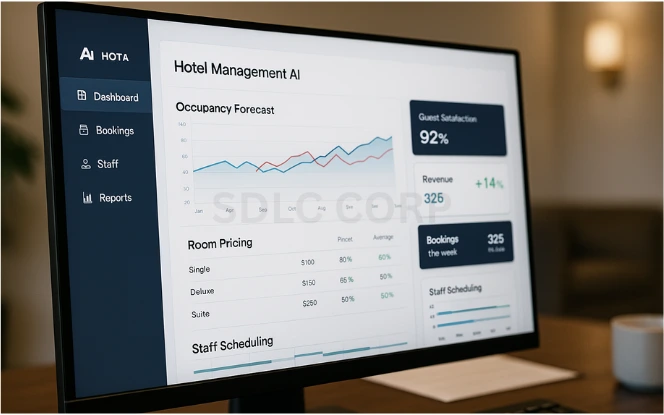
AI for hotel management tools help streamline operations:
Key Functions:
- Forecasting occupancy using historical data + event calendars.
- Optimizing dynamic pricing to match demand.
- Predictive maintenance for equipment.
- Smart staff scheduling.
Example: During peak season, AI predicts high occupancy, adjusts room rates, and recommends extra staffing for housekeeping keeping service quality consistent without overspending.
AI-Powered Guest Experience
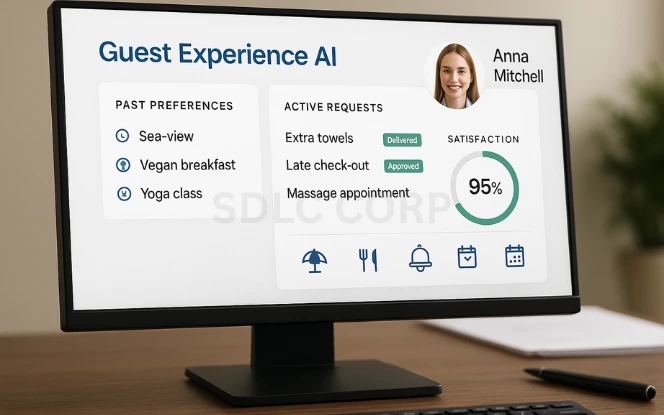
Personalization is central to guest satisfaction. AI-powered guest experience systems track preferences across stays:
- Recognize room type choices.
- Suggest upgrades that match guest habits.
- Offer timely service reminders.
AI can adapt tone and style based on traveler type, formal for business guests, relaxed for leisure travelers, making interactions feel natural.
Personalized Travel Recommendations with AI
Clear and timely communication plays a key role in guest experience. Generative AI can help draft responses, summarise guest requests, and support multilingual communication. In these scenarios, a Generative AI consulting company may assist in evaluating suitable use cases and defining content review processes to ensure accuracy and tone alignment.
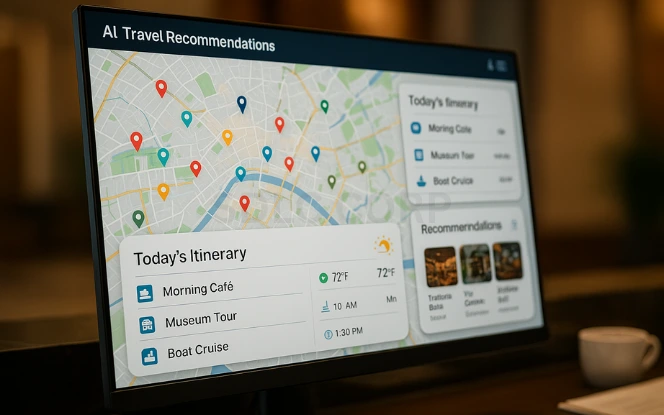
Travel planning can be overwhelming. Personalized travel recommendations with AI reduce research time by:
- Creating day-by-day itineraries based on interests, budget, and weather.
- Suggesting restaurants that match dietary preferences.
- Updating recommendations in real-time based on events or traffic.
For example, an art enthusiast might receive a custom route visiting three galleries, a coffee spot, and an evening jazz show, complete with walking directions.
Chatbots for Hotel Customer Service
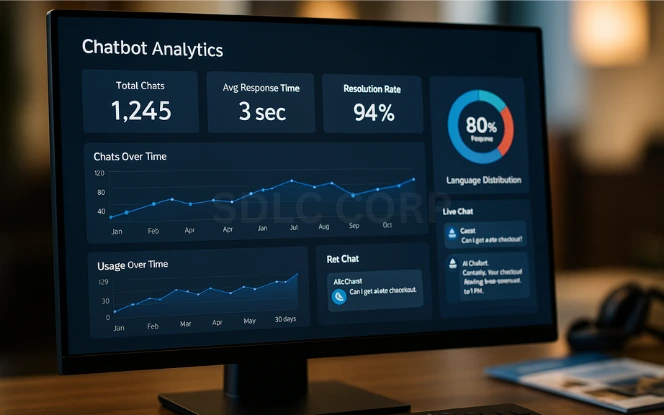
Chatbots for hotel customer service powered by generative AI are available 24/7 and can:
- Handle multilingual requests.
- Make bookings or modify reservations.
- Answer in-stay service requests like “extra towels” or “late checkout.”
Advanced systems escalate complex issues to staff while passing the full conversation context and avoiding guest frustration.
AI-Driven Hospitality Marketing
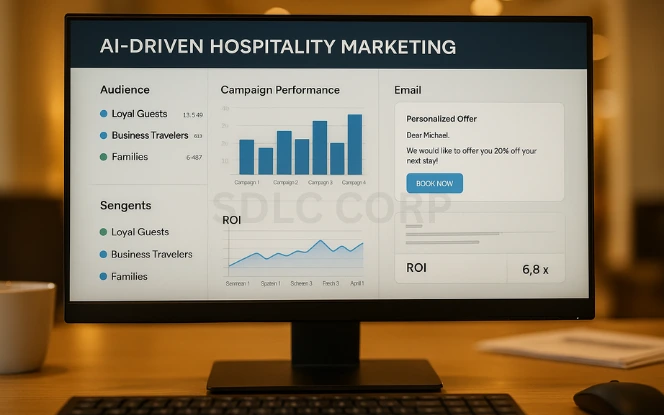
AI-driven hospitality marketing leverages guest data to craft relevant campaigns:
- Identify patterns (e.g., spa bookings in winter).
- Automate personalized offers.
- Generate copy, images, and even videos for promotions.
Example: Guests who booked honeymoon suites receive tailored anniversary offers driving repeat business.
Ethical, Privacy & Sustainability Considerations
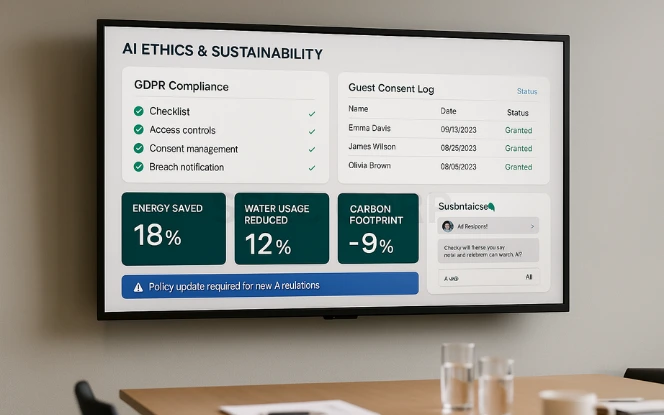
Generative AI requires responsible use:
- Data privacy: Ensure secure storage and compliance with GDPR/CCPA.
- Transparency: Tell guests when AI is used in interactions.
- Bias prevention: Train models with diverse datasets.
- Sustainability: AI-driven energy optimization can reduce hotel carbon footprints.
Real-World Case Studies
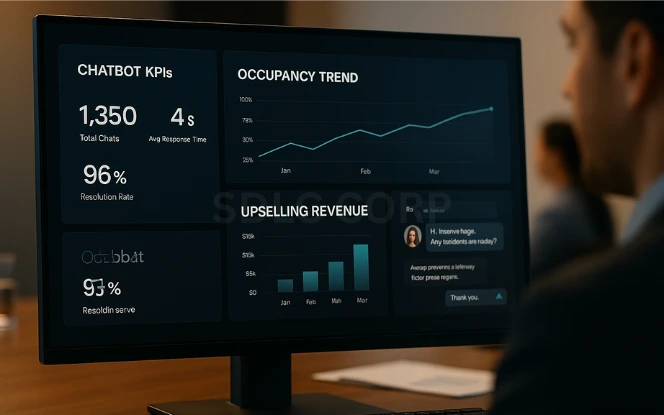
| Hotel / Brand | AI Application | Outcome |
|---|---|---|
| Hilton | AI chatbot “Connie” for concierge services | Reduced wait times by 40% |
| Marriott | Personalized upselling engine | Increased upgrade revenue by 15% |
| MakeMyTrip | AI trip planner | Improved itinerary adoption rate by 25% |
ROI & Implementation Roadmap
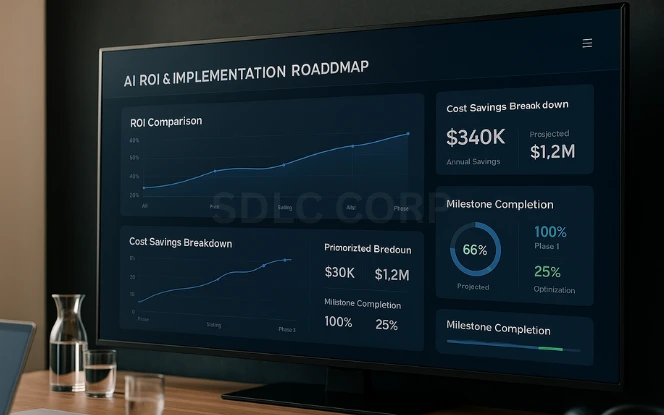
ROI Drivers:
- Labor cost reduction through automation.
- Increased revenue from upselling and targeted marketing.
- Higher guest retention via personalization.
Roadmap:
- Assess current operations and guest data flow.
- Pilot one high-impact use case (e.g., AI chatbot).
- Scale to include pricing, marketing, and personalization tools.
Future Trends in Generative AI for Hospitality
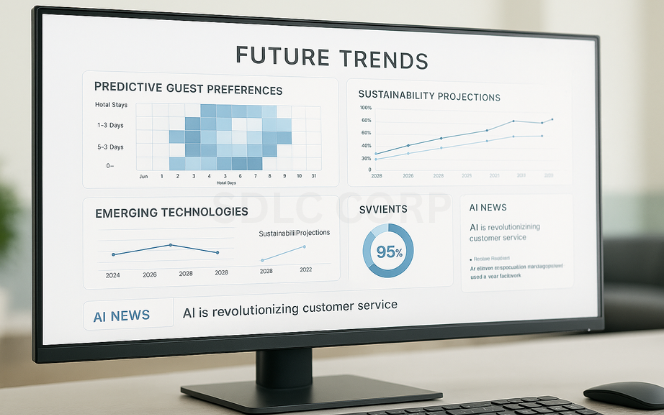
- Hyper-personalization: Predicting guest needs before they’re voiced.
- Voice-first experiences: Room control via voice assistants.
- Integrated sustainability dashboards: AI optimizing energy and waste management.
- Cross-platform guest profiles: Consistent experience across multiple properties.
Ongoing Development and System Maintenance
Hospitality operations evolve with changing guest expectations and seasonal demand. Generative AI systems must be updated to reflect these changes. Some organisations choose to hire generative AI developers to maintain models, update integrations, and ensure systems continue to support service workflows.
Conclusion
Generative AI is transforming the way hotels operate and serve guests. From AI for hotel management to AI-powered guest experience, personalized travel recommendations with AI, chatbots for hotel customer service, and AI-driven hospitality marketing, the technology is redefining hospitality standards.
The future will belong to hotels that combine AI’s precision with human warmth. By acting now, businesses can secure a competitive advantage in guest satisfaction and operational efficiency. Contact us SDLC corp to explore how these solutions can work for your property.
To take the next step, Hire AI Development Services with SDLC Corp and explore how tailored solutions can transform your organization.
FAQs
What Is Generative AI And How Is It Transforming Hospitality?
Generative AI is advanced technology that creates content, predicts trends, and personalizes services using data. In hospitality, it helps hotels automate tasks, customize guest experiences, and make smarter operational decisions.
How Can Generative AI Improve Guest Personalization In Hotels?
By analyzing guest history and preferences, generative AI can suggest tailored room types, dining options, and local activities, creating a more memorable and personalized stay.
What Are The Most Common Applications Of Generative AI In Hospitality?
Hotels use generative AI for chatbots, dynamic pricing, targeted marketing, and predictive maintenance, helping improve efficiency and guest satisfaction.
How Do AI-Powered Chatbots Enhance Customer Service In Hotels?
AI chatbots provide instant, 24/7, multilingual support for bookings, requests, and recommendations, allowing staff to focus on delivering personal service.
What Are The Key Challenges Of Implementing Generative AI In Hospitality?
Main challenges include ensuring data privacy, integrating with existing systems, training staff, and maintaining a balance between automation and human touch.

